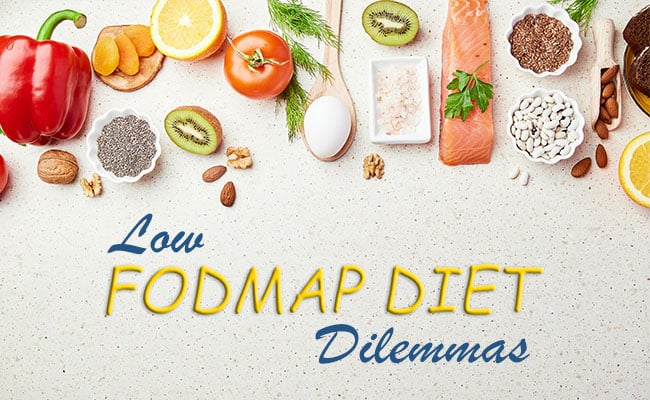 Rome Campus
Rome Campus
A Simplified Approach to the Low FODMAP Diet
How to Start the Conversation Around Diet & DGBI
Scientific evidence for a central role of food in IBS
Low FODMAP Diet Dilemmas: A Case-based Approach
Clinical Pearls from Interdisciplinary Treatment of Functional Constipation and Fecal Incontinence
Clinical Pearls from Interdisciplinary Treatment of Pediatric DGBIs: Nutrition and Eating Behaviors
GastroPsych Skills for GI Advanced Practice Providers Treating IBS-C
GastroPsych Pediatric Clinical Case Conference Series
Rome Foundation GastroPsych Clinical Case Conference Series - Session One
Rome Foundation GastroPsych Clinical Case Conference Series - Session Two
Rome Foundation GastroPsych Clinical Case Conference Series - Session Three
Rome Foundation GastroPsych Clinical Case Conference Series - Session Four
Rome Foundation GastroPsych Clinical Case Conference Series - Session Five
Rome Foundation GastroPsych Clinical Case Conference Series - Session Six
Rome Foundation GastroPsych Clinical Case Conference Series - Session Seven
Rome Foundation GastroPsych Clinical Case Conference Series - Session Eight
Back to School with Disorders of Gut Brain Interactions
Psychosocial and Cultural Considerations in GI Behavioral Health
Integrating Group Therapy into GI Behavioral Health Practice
Psychogastroenterology Basic Skills Workshop
Hypnosis Techniques in Psychogastroenterology
An introduction to Acceptance and Commitment Therapy for Disorders of Gut-Brain Interaction (DGBI)
Behavioral Interventions for DGBI Conditions of the Upper GI Tract
Cognitive-Behavioral Therapy for Avoidant/Restrictive Food Intake Disorder (ARFID)
GI Physiology for the Behavioral Health Provider
2023 Pediatric Symposium: Hot Topics in Pediatric DGBI
Rome Foundation Virtual Pediatric Symposium - 0 CE Credits
Diet & Nutrition: Which Diet for Which Patient?
Grand-Rounds 2025 - A Global Approach to Refractory Constipation
Grand Rounds 2025 - Anorectal Biofeedback Therapy: When, How To Do It, & How Useful
Grand Rounds 2025 - Clinical Pearls for Constipation Beyond Guidelines
Grand Rounds 2025 - It takes a Village. An integrated approach to the management of IBS-C.
Grand Rounds 2025: Belching, Rumination and Inability to Belch
Grand Rounds 2025 - How to Understand, Diagnose and Manage the IBS / Organic Disease Overlap
Grand Rounds - Demystifying Gastroparesis: Lessons from Around the World
Highlights of Lead Papers from the Rome Foundation Global Epidemiology Study
Grand Rounds 2024 - Scientific evidence for a central role of food in IBS
Grand Rounds 2024 - Low FODMAP Diet Dilemmas: A Case-based Approach
Grand Rounds 2024: The 3 step approach to Integrated Psychosocial Care in DGBI
Grand Rounds 2024: Abdominal Bloating and Distension
Grand Rounds 2024: Abuse, Trauma, and Illness: What is the link?
Grand Rounds: Communication Skills
Grand Rounds: Sociocultural aspects of the assessment and treatment of patients with DGBI
Grand Rounds: Post Covid-19 DGBI
Grand Rounds: Deep Dive Into Central Neuromodulators
Grand Rounds: DGBI in Pediatric Populations
Grand Rounds: Gastroparesis vs FD
Grand Rounds: History of Disorders of Gut-Brain Interaction - DGBI (Functional GI Disorders)
Grand Rounds: DGBI Overlapping with Organic Disease
When Functional Dyspepsia Meets Gastroparesis
Functional Dyspepsia–Constipation Overlap: An Under-Recognized Clinical Challenge
Complimentary - Approach to Refractory Constipation
A simplified approach to the Low FODMAP Diet - complimentary
Anorectal Biofeedback Therapy: When, How To Do It, & How Useful
Clinical Pearls for Constipation Beyond Guidelines
From Infection to Persistent Gastrointestinal Symptoms: Post-Infectious IBS
Belching, Rumination and Inability to Belch
It takes a Village. An integrated approach to the management of IBS-C.
Grand Rounds 2025 - How to Understand, Diagnose and Manage the IBS / Organic Disease Overlap
Grand Rounds - Demystifying Gastroparesis: Lessons from Around the World
Highlights of Lead Papers from the Rome Foundation Global Epidemiology Study
Grand Rounds 2024 - Scientific evidence for a central role of food in IBS
GastroPsych - Integrating Group Therapy into GI Behavioral Health Practice
Grand Rounds 2024 - Low FODMAP Diet Dilemmas: A Case-based Approach
Grand Rounds: The 3 step approach to Integrated Psychosocial Care in DGB
Grand Rounds: Abdominal Bloating and Distension
Grand Rounds: Abuse, Trauma, and Illness: What is the link?
Grand Rounds: ACG vs AGA IBS Guidelines and Clinical Application
Clinical Pearls from Interdisciplinary Treatment of Functional Constipation and Fecal Incontinence
Clinical Pearls from Interdisciplinary Treatment of Pediatric DGBIs: Nutrition and Eating Behaviors
GastroPsych Skills for GI Advanced Practice Providers Treating IBS-C
GastroPsych Pediatric Clinical Case Conference Series
Rome Foundation GastroPsych Clinical Case Conference Series - Session One
Rome Foundation GastroPsych Clinical Case Conference Series - Session Two
Rome Foundation GastroPsych Clinical Case Conference Series - Session Three
Rome Foundation GastroPsych Clinical Case Conference Series - Session Four
Rome Foundation GastroPsych Clinical Case Conference Series - Session Five
Rome Foundation GastroPsych Clinical Case Conference Series - Session Six
Rome Foundation GastroPsych Clinical Case Conference Series - Session Seven
Rome Foundation GastroPsych Clinical Case Conference Series - Session Eight
Back to School with Disorders of Gut Brain Interactions
Psychosocial and Cultural Considerations in GI Behavioral Health
Integrating Group Therapy into GI Behavioral Health Practice
Psychogastroenterology Basic Skills Workshop
Hypnosis Techniques in Psychogastroenterology
An introduction to Acceptance and Commitment Therapy for Disorders of Gut-Brain Interaction (DGBI)
Behavioral Interventions for DGBI Conditions of the Upper GI Tract
Cognitive-Behavioral Therapy for Avoidant/Restrictive Food Intake Disorder (ARFID)
Diet & Nutrition: Which Diet for Which Patient?
Grand-Rounds 2025 - A Global Approach to Refractory Constipation
Grand Rounds 2025 - Anorectal Biofeedback Therapy: When, How To Do It, & How Useful
Grand Rounds 2025 - Clinical Pearls for Constipation Beyond Guidelines
Grand Rounds 2025 - It takes a Village. An integrated approach to the management of IBS-C.
Grand Rounds 2025: Belching, Rumination and Inability to Belch
Grand Rounds 2025 - How to Understand, Diagnose and Manage the IBS / Organic Disease Overlap
Grand Rounds - Demystifying Gastroparesis: Lessons from Around the World
Highlights of Lead Papers from the Rome Foundation Global Epidemiology Study
Grand Rounds 2024 - Scientific evidence for a central role of food in IBS
Grand Rounds 2024 - Low FODMAP Diet Dilemmas: A Case-based Approach
Grand Rounds 2024: The 3 step approach to Integrated Psychosocial Care in DGBI
Grand Rounds 2024: Abdominal Bloating and Distension
Grand Rounds 2024: Abuse, Trauma, and Illness: What is the link?
Grand Rounds: Communication Skills
Grand Rounds: Sociocultural aspects of the assessment and treatment of patients with DGBI
Grand Rounds: Post Covid-19 DGBI
Grand Rounds: Deep Dive Into Central Neuromodulators
Grand Rounds: DGBI in Pediatric Populations
Grand Rounds: Gastroparesis vs FD
Grand Rounds: History of Disorders of Gut-Brain Interaction - DGBI (Functional GI Disorders)
When Functional Dyspepsia Meets Gastroparesis
Functional Dyspepsia–Constipation Overlap: An Under-Recognized Clinical Challenge
Complimentary - Approach to Refractory Constipation
A simplified approach to the Low FODMAP Diet - complimentary
Anorectal Biofeedback Therapy: When, How To Do It, & How Useful
Clinical Pearls for Constipation Beyond Guidelines
From Infection to Persistent Gastrointestinal Symptoms: Post-Infectious IBS
Belching, Rumination and Inability to Belch
It takes a Village. An integrated approach to the management of IBS-C.
Grand Rounds 2025 - How to Understand, Diagnose and Manage the IBS / Organic Disease Overlap
Grand Rounds - Demystifying Gastroparesis: Lessons from Around the World
Highlights of Lead Papers from the Rome Foundation Global Epidemiology Study
Grand Rounds 2024 - Scientific evidence for a central role of food in IBS
GastroPsych - Integrating Group Therapy into GI Behavioral Health Practice
Grand Rounds 2024 - Low FODMAP Diet Dilemmas: A Case-based Approach
Grand Rounds: The 3 step approach to Integrated Psychosocial Care in DGB
Grand Rounds: Abdominal Bloating and Distension
Grand Rounds: Abuse, Trauma, and Illness: What is the link?
Grand Rounds: ACG vs AGA IBS Guidelines and Clinical Application
Diet and Nutrition
Best of UEG 2025
Rome Foundation Continuing Medical Education Webinar.
This educational session is open to all healthcare professionals interested in the role of diet and nutrition in treating disorders of gut-brain interaction (DGBI). Please note: CE credits are not offered for this session.
Want to hear about the top diet and nutrition-related abstracts in the field of DGBI from UEG 2025 in one short webinar?
Join experts from our Rome Diet and Nutrition Section as they unpack some of the top research from UEG that is advancing our understanding of diet, nutrition, and DGBI.
• Cost: Free
Best of DDW 2025
Rome Foundation Continuing Medical Education Webinar.
This educational session is open to all healthcare professionals interested in the role of diet and nutrition in treating disorders of gut-brain interaction (DGBI). Please note: CE credits are not offered for this session.
Want to hear about the top diet and nutrition-related abstracts in the field of DGBI from DDW 2025 in two short webinars?
Join experts from our Rome Diet and Nutrition Section as they unpack some of the top research from DDW that is advancing our understanding of diet, nutrition, and DGBI.
• Cost: Free
A Simplified Approach to the Low FODMAP Diet
Rome Foundation Continuing Medical Education Webinar.
This webinar reviews evidence on the low-FODMAP diet for IBS, its efficacy and limitations, common triggers, and simplified dietary approaches. It offers practical guidance and clinical pearls to help clinicians apply streamlined low-FODMAP strategies effectively in practice.
Please note: CE credits are not offered for this session.
• Level: Beginner/Intermediate
• Cost: Free
How to Start the Conversation Around Diet & DGBI
A Rome Foundation Continuing Medical Education program.
Rome Foundation Diet and Nutrition Webinar: an on-demand and live educational opportunity to discuss how to initiate a conversation with the patient around diet and its role in Disorders of Gut-Brain Interaction (DGBI). The webinar will give both the physician and dietitian perspectives and provide phrases that clinicians can use to address patients' perception of food and when tackling tough patient questions.
Learning Objectives:
1. Understand how DGBI and diet are interconnected
2. Integrate nutrition into medical care plans
3. Formulate responses to common patient questions around diet
4. Build a toolbox with conversation points surrounding how to start conversations about diet in patients with a DGBI
Speakers:
Joshua D Novak, MD
Associate Professor of Medicine
Icahn School of Medicine at Mount Sinai
New York, NY
Bethany Doerfler, MS, RDN
Clinical Research Dietitian
Behavioral Medicine Group at Northwestern's Digestive Health Institute (DHI)
Scientific evidence for a central role of food in IBS
This symposium from the newly formed Rome Foundation Diet and Nutrition section provides updates about the scientific evidence that supports the relevance of food in symptom generation in IBS and the use of various dietary interventions in the management of patients with IBS.
The symposium starts with a general overview on the role of food in the pathophysiology with IBS by Rome Foundation Board Member Magnus Simrén, University of Gothenburg, Sweden, and continues with two lectures dedicated to the current dietary interventions used to treat symptoms in IBS by Caroline Tuck, Swinburne University, Australia and Stine Störsrud, University of Gothenburg, Sweden; the session ends with a general discussion and Q&A, and after the session attendees will have a better knowledge about the scientific basis for a central role for food in the pathophysiology in IBS, and for use of dietary approaches as part of the clinical management of IBS, and how to communicate this to the patients.
Presented by:
Magnus Simrén, MD, PhD, RFF
Carolina Tuck, PhD
Stine Störsrud, RD, PhD
Low FODMAP Diet Dilemmas: A Case-based Approach
This symposium will use a case-based approach to provide answers to questions that commonly arise about the low FODMAP diet when used for patients with IBS:
|
Presented by:
William D. Chey, MD, AGAF, FACG, FACP, RFF
Marvin Pollard, Professor of Gastroenterology, Professor of Nutrition Sciences
Chief, Division of Gastroenterology & Hepatology
Michigan Medicine, Ann Arbor, MI, USA
Nancee B. Jaffe, MS, RDN
Lead Dietitian for the UCLA Vatche and Tamar Manoukian Division of Digestive Diseases


